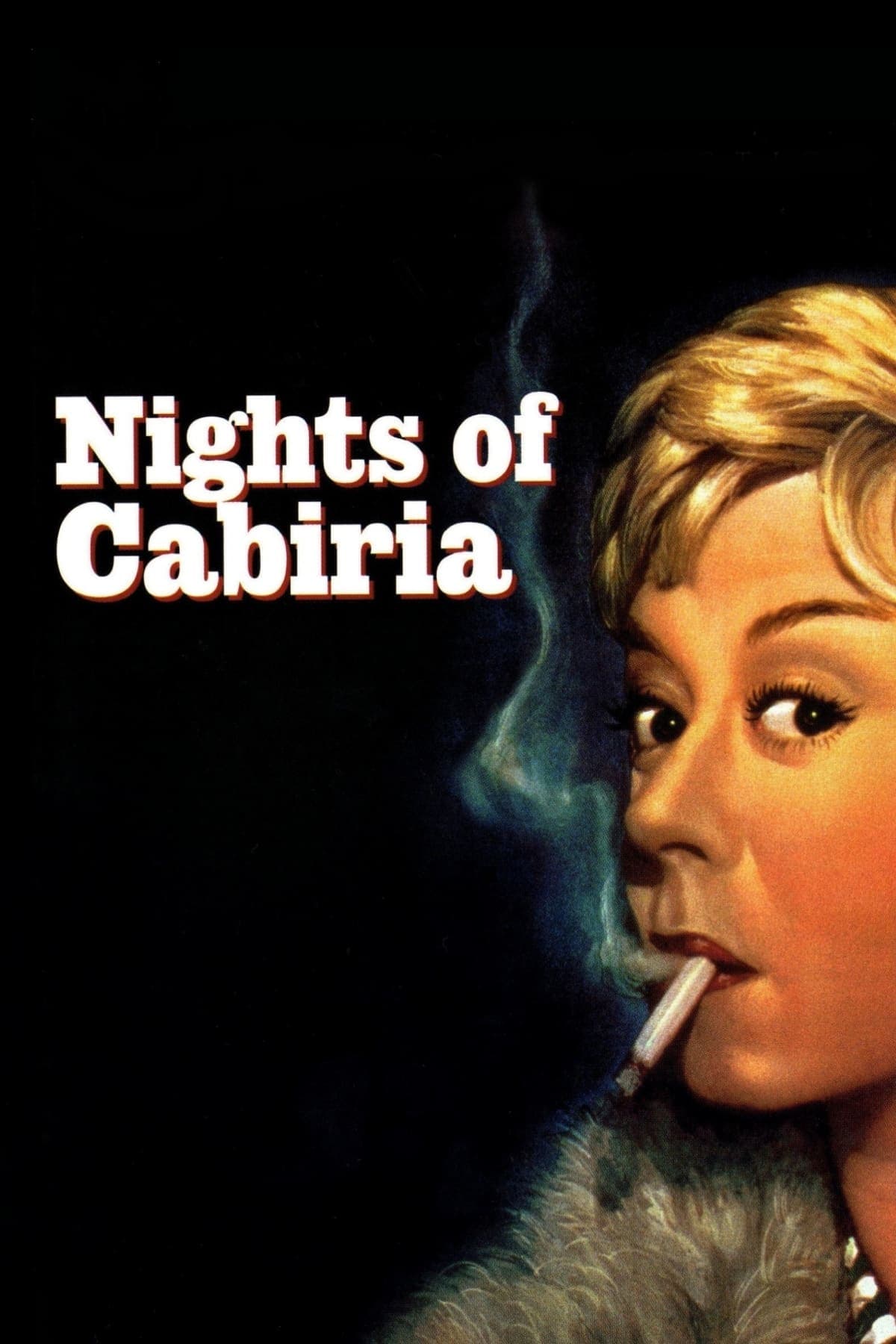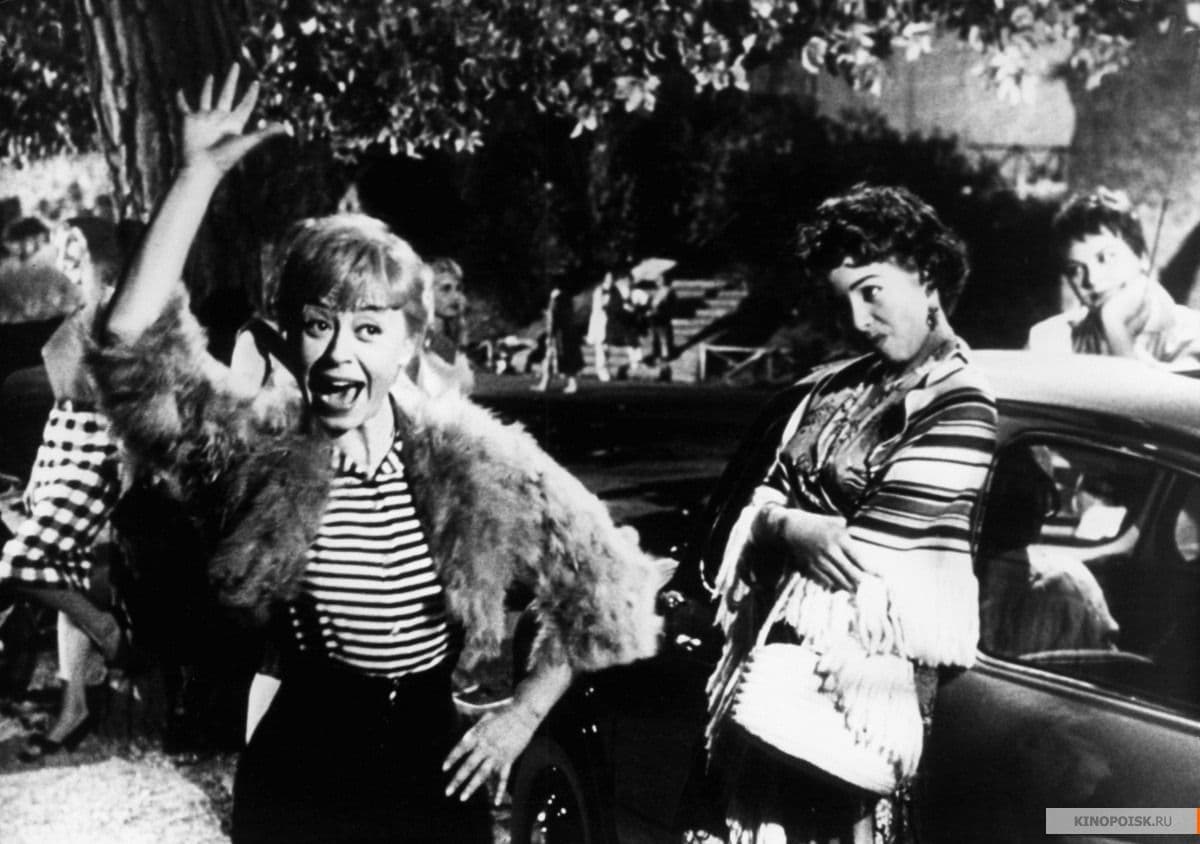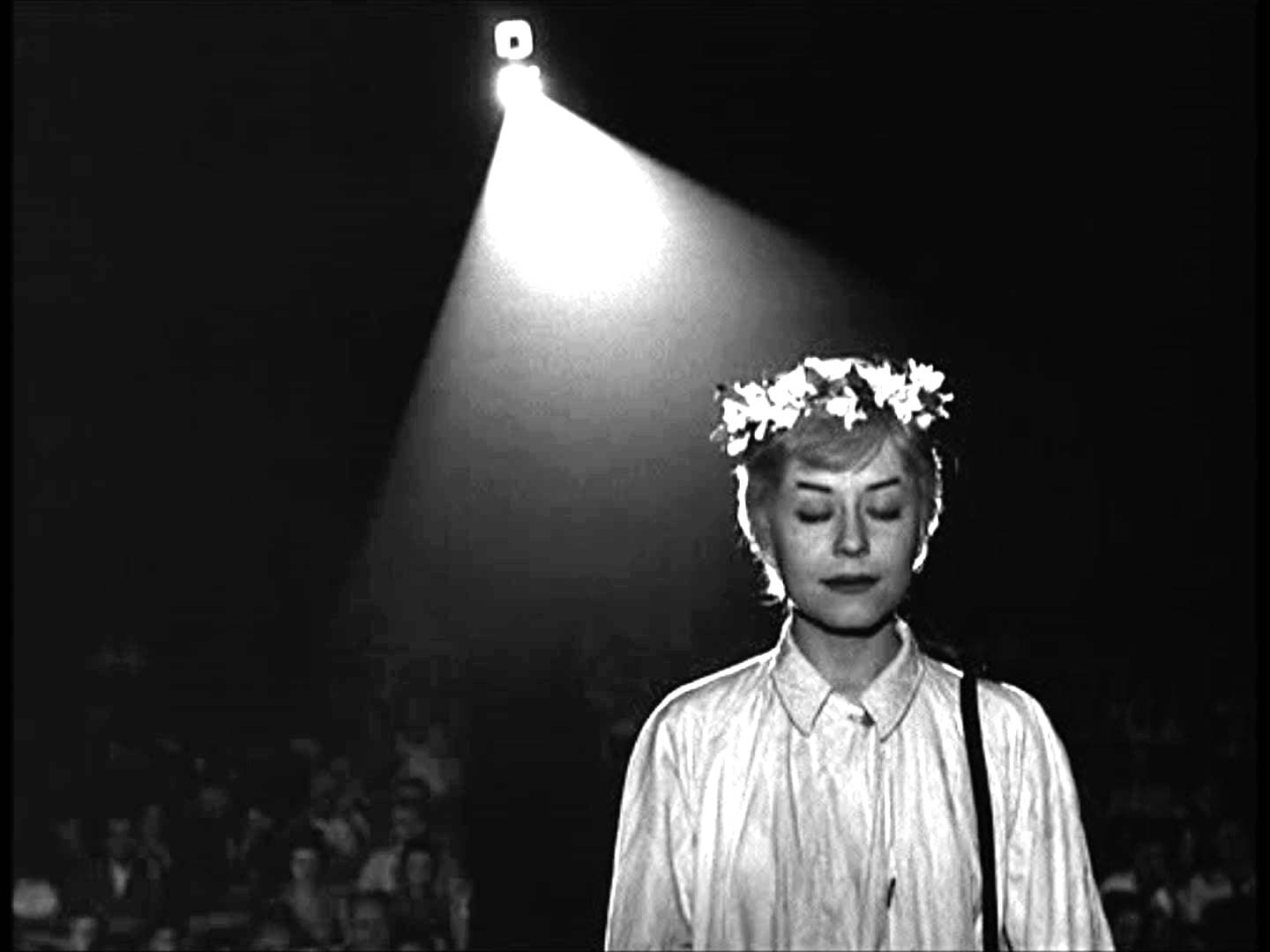
Nights of Cabiria
1957
Rate this movie
Average: 0.00 / 5
(0 votes)
Director
This restless and precious work by Federico Fellini is the sixth since the beginning of his luminous career as a filmmaker. A work that, situated in a fascinating limbo between the formal and thematic rigor of Neorealism and the baroque and dreamlike visions that would soon consecrate the Maestro from Rimini, stands out for its ability to explore the human soul with rare sensitivity and disarming authenticity. Not coincidentally, this film won the Oscar for Best Foreign Language Film, a recognition that sealed its universal scope and sublime craftsmanship, while still remaining anchored to a more "earthly" approach compared to Fellini's subsequent, monumental symphonies.
A film centered on a character of popular extraction, a Roman prostitute from the outskirts, who laboriously wrings from life and its harshness hard-earned savings that she entrusts to a young clerk. This figure, little Cabiria, unforgettably played by Giulietta Masina, is not a mere victim of her environment or a social symbol, but an archetype of indomitable resilience, a candid and tenacious soul who, despite endless disappointments, desperately clings to hope. Her disarming naivety, already glimpsed in Cabiria's cameo in La Strada – a fleeting hint that here blossoms into a full-fledged portrait, deepening the vulnerability and strength of the "clown-character" so dear to Fellini – is both her strength and, at times, her undoing. The young man, however, robs her of all her money and leaves her for dead after an assault, a brutal betrayal that, far from annihilating her, constitutes yet another purgatory to traverse.
Little Cabiria will have to set out again, not only physically through the streets of an indifferent and often hostile Rome, but above all through the dark valleys of her soul, encountering a gallery of improbable characters. They manifest as stages of a picaresque odyssey in the heart of the Capital: a declining Cinecittà diva who takes her under her wing, offering her an ephemeral taste of a world of glossy pretense and gilded solitude, and a comical hypnotist, Mago Besti, who grants her glimpses of the future and epiphanies about the present, publicly revealing her innermost desires and her desperate need to be loved, both humiliating and sublimating her. Every encounter is an illusion that shatters, a flower of hope that withers, yet Cabiria, like a modern Sisyphus, always finds the strength to push her boulder up the hill, with an almost superhuman stubbornness that defies the logic of despair.
A masterful work where a façade of Neorealism acts as a counterbalance to an innovative and meticulous psychological profile of each character, achieved through dialogues and shots almost fierce in their realism. Fellini does not merely document Roman squalor or its periphery, but transforms them into a theatrical setting for existential inquiry. If in coeval works like De Sica's Umberto D. Neorealism resolved itself into a lucid, albeit sorrowful, social analysis of poverty and marginalization, here Fellini's camera plunges into the heart of his characters, extracting not only their material conditions, but their aspirations, their solitudes, their desperate search for meaning. It is a realism that pierces the surface to plumb the depths of the soul, a kind of "Neorealism of the Soul," where truth is not only that of facts but that of the most recondite feelings and secret fantasies. Subtly, Fellini's sardonic smile sows flashes of irony that delight the palate, an irony never cynical, but tinged with a profound melancholy and a compassion that elevates observation to pure poetry. The atmosphere he creates is a crucible where the sacred and the profane, the sublime and the grotesque blend seamlessly, anticipating the theatricality of life that would characterize his subsequent masterpieces, from La Dolce Vita to 8 1/2, yet here still permeated by an almost palpable tenderness.
Street life is in fact the only morally unobjectionable thing in this film, the only glimmer of pseudo-holiness, of virtue without a shadow of hypocrisy. In this universe of marginalized individuals and "the last," where survival is a daily battle, there lies a purity of intent that clashes with bourgeois and hypocritical morality. Cabiria's prostitute friends, her street colleagues, are figures of straightforward emotional honesty, capable of an authentic solidarity lacking in the "respectable" world. Consider the sequence of the pilgrimage to the Sanctuary of the Madonna del Divino Amore: Cabiria, with her headscarf and the naive desire for a miracle, joins the crowd of devotees, moved by a simple and sincere faith, praying for change, for a sign. Here, her almost childlike devotion strikingly contrasts with the commercialization of faith and the empty rhetoric of some participants, highlighting how her "holiness" resides not in dogma or social conventions, but in the purity of her desire and her ability to hope against all odds. It is her invincible faith in love, in the possibility of a better life, that makes her an icon of resilience. Giulietta Masina, with her Chaplin-esque mimicry, her gaze alternating despair and a stubborn flicker of hope, embodies Cabiria unforgettably, transforming her uncertain walk and comical gestures into a tragicomic ballet of existence. It is a performance that inextricably links her to the great melancholic clowns of silent and sound cinema, capable of evoking laughter and tears with the same, disarming ease.
And just when all hope seems to vanish, when yet another betrayal threatens to annihilate her shattered soul, Fellini gives us one of the most moving and iconic endings in cinema history. After being robbed and abandoned, left to her fate in a desolate woods, Cabiria suddenly finds herself surrounded by a group of young musicians and dancers who pass by her, unaware of her personal tragedy, yet carrying a contagious vitality. Her gaze, initially lost in emptiness, slowly rekindles: a faint, almost imperceptible smile begins to appear on her face as the music envelops her. It is not a traditional happy ending, but a celebration of life itself, of its inexhaustible capacity for rebirth, a hymn to the indomitable human spirit that, even after the deepest abyss, can still find a glimmer of joy in simple companionship and the unexpected beauty of the present moment. In that final smile, in her ability to find comfort in the music and in the anonymous crowd that smiles at her without knowing her, lies the whole of Fellini's poetics: life is a circus where one cries and laughs, and true salvation resides not in material fortunes or ideal loves, but in the ability to keep marching, dancing, existing, despite everything. Nights of Cabiria thus remains a manifesto of human dignity, a song of survival that, even today, resonates with a power and tenderness capable of moving and inspiring, confirming the genius of a director who knew how to look beyond the surface, into the pulsating and contradictory soul of the world.
Genres
Gallery






Featured Videos
Official Trailer
Comments
Loading comments...